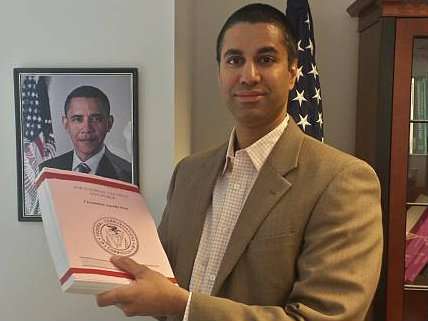ISPs Challenge FCC Net Neutrality Rules as "Arbitrary, Capricious, and An Abuse of Discretion"

The Federal Communications Commission's new Internet rules aren't even a month old, and they're already being challenged in court—multiple courts, to be exact.
A consortium of major Internet service providers, through the USTelecom Association, which includes AT&T and Verizon, formally submitted a legal complaint in the District of Columbia yesterday. The complaint states that the FCC's recent order, which reclassifies broadband Internet service as a Title II telecommunications service, making it akin to a utility, is "arbitrary, capricious, and an abuse of discretion…" and that it "violates federal law, including, but not limited to, the Consitution, the Communications Act of 1934, as amended, and FCC regulations promulgated thereunder."
Another suit was filed by a small Texas ISP in a New Orleans court. Both suits were first noted by The Washington Post.
The legal challenges were all but inevitable as soon as the FCC decided to pursue reclassification, which potentially subjects ISPs to much stricter regulatory oversight. The FCC has been nosing around the possibility of reclassification for years, and critics have been warning the entire time that if the agency went that route, a drawn out legal battle would be unavoidable. The FCC made its choice, and now a multi-year, multi-front courtroom saga awaits.
And the thing is, the FCC might lose—again. The agency's last two attempts to institute net neutrality also wound up in court, and both were eventually thrown out. It's not all clear that the agency's rules have more solid legal grounding this time.
Indeed, as Berin Szoka of TechFreedom points out, the FCC's refusal to formally issue notice of new rules late last year when Chairman Wheeler changed directions and began considering reclassification is a vulnerability. Because of that decision, the rules that the FCC voted on last month were never really debated publicly; the agency had spent a year taking public comments on a different proposal, and then altered its approach at the last minute. That alone makes it legally dicey.
Anyway, this is likely just the first salvo in the Great Telecom Legal War. According to Ars Technica, more lawsuits are expected from trade groups for cable and wireless service companies. This is an all hands on deck fight for the telecom industry, with the majority of the major players taking major steps to fight the FCC's rules.


Show Comments (33)